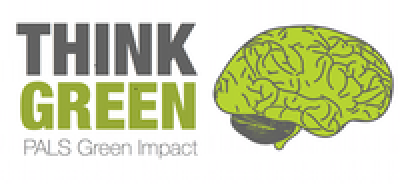
Energy Usage in the Faculty of Brain Sciences
View how much energy is used in the Faculty of Brain Sciences by clicking here.
Reducing resource consumption
Recycling is all well and good, but even better is not using resources in the first place. Here are some tips for reducing your resource consumption.
Electricity
- When leaving your office or lab, please switch off all personal items in offices before leaving (mobile phone chargers/printers/laptop/ipod). Similarly when leaving a teaching room and if nobody is giving a lecture or talk immediately afterwards, please switch off lights, PC etc.
- Heating: try not to use supplementary heating in winter. If your office is cold, first check that the radiators (for those who have them) are on by turning the uppermost knob fully anticlockwise. If this does not work, Bedford Way people should their local Estates & Facilities person to arrange for the heaters to be checked. It is useful to look at ways of insulating the windows. Try reviving that ancient technology, the woolly jumper! If you do decide you need to resort to supplementary heating, local Estates & Facilities person can advise on the most energy-efficient way to do this.
- Cooling: similarly, try not to use air conditioning and fans in the summer. An alternative way to cool an office is to (if possible) open the windows, lower the venetian blinds and tilt the slats slightly upwards so that air but not sunlight can pass through. Prop the door open so that air circulates, and switch off unnecessary electrical equipment. Heating in any air-conditioned rooms should not be higher than 21 degrees. Please do not set any heating controls higher than this.
- Photocopiers: Run a test copy on a single sheet to check formatting before launching a large batch. Use the shrinking function to fit two pages to a side of A4, and then print double-sided. Recycle excess sheets in the recycle bins beside the copiers.
- Do not leave laser printers on all the time if this can be avoided, as they use a lot of power keeping the toner warm.
Think about sharing with colleagues to reduce the numbers of printers we need to buy and later dispose of.
Talk to the PALS IT Team on how to network a printer so that several PCs can use it: itsupport@pals.ucl.ac.uk - Do not leave computers on standby overnight, or over the weekend. A computer on standby uses 55W. It is estimated that if everybody in Bedford Way switched their machines off at night (note: with the power switch but not the mains), we would save £5000 per year! (or 29 trees, if you prefer that metric).
Paper and toner
We clearly need to reduce our use of paper; here are some suggestions as to how.
- Only print what is absolutely necessary. You should only rarely, for example, need to print emails. Do students really need handouts? Think about putting as much information as possible on the web (bearing in mind that if students feel they need it printed, they may do so less efficiently at home). Torrington Place limits handouts to 6 sides of A4.
- Where possible, print double-sided. If your eyesight allows it (!), set the default on your printer to fit two pages per side. If you are buying a new printer, consider making it a duplex printer.
- Print in draft or economode quality (on ‘print setup’) for everything except important documents.
- Exhausted toner cartridges can sometimes be given a new lease of life by giving them a good shake. When finished, they can be recycled (General Offices in either Bedford Way or Torrington Place).
- Junk mail – try to remove yourself from unwanted mailing lists. Click here for a link to the mailing preference service, which will remove your name from junk mail distributor lists. Phone the offending companies directly, if necessary, and ask to be taken off their mailing list.
- Subscribe to UCL's email Spam removal servicee
- Recycled stationery - we have stocks of recycled stationary. Please use this or ask for it if its not readily-to-hand.
Batteries
Note that the energy needed to manufacture a battery is on average 50 times greater than the energy it gives out. Buy a battery recharger and use rechargeable batteries instead. If you must use batteries, place used batteries in battery recycle bins which can be found in most UCL buildings.
Eating and drinking
Use china cups and mugs rather than disposable polystyrene ones eg the Bedford Way Common Room has a supply of them which they’re happy to lend out, provided they are returned.

Sustainable local food - every fruit or vegetable has its season, the time of the year when you can enjoy it at its very best. You can enjoy fruit and veg that tastes better, is better value and is better for the planet. Why not visit a farmers' market where you can buy fresh produce from local farmers and producers. The local Farmers' Market takes place every Thursday at the back of Birkbeck College from 8:30 to 14:00.
When buying tea and coffee (as well as other products) consider buying from Fairtrade producers. Find out more about Fairtrade.
Building Contacts
| Alexandra House Estates & Facilities | Raul Carstocea |
| Bedford Way Estates & Facilities | George Joseph |
| Chandler House Estates & Facilities | Dave Cushing |
| Torrington Place Estates & Facilities | To be confirmed |
| UCLIC Estates & Facilities | Louise Gaynor |

 Close
Close

